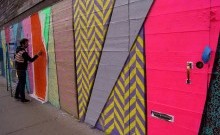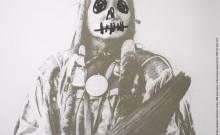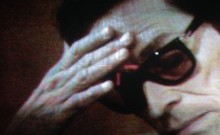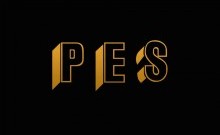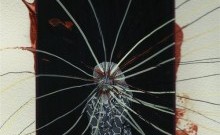Hen Win : At the End of the Road, The Metaphor of The City
Far beyond them all stood a cluster of buildings on the horizon like a pile of small white shells.
I met Hen Win, a number of ways.
First, we met outside a house party in New York where his band was playing. His name used to be Matthew, & still is, to me. He asked me what I did, I said I went to school. He asked me what school & I told him. I told him what I thought. It wasn't in any way a glowing review. He asked me what I really felt. I had a feeling we were about to be fast friends.
We were.
We then proceeded to make the most of all our time, together. We performed together, in innumerable forms. All over the country. We wrote about each other, we wrote about the things we saw around ourselves, & we reminded each other of what we each had seen, together, through each song. Over the years, we would send each other writing, ask each other what we thought. And we'd concoct many a dream about the next step. Over time, the music faded, but the writing stayed. Now it is years later, many. And yet, we still have this connexion --- from when we were young. Of being connected, this connexion of being bound from another time, like in another life, or era --- like being born out of this time, this century. This is the bond we have collected. We lived together, worked together, grieved together, triumphed together.
Hen Win is a writer. He is that much, most of all. But he was always pushing the boundaries of what was written, & what was performance. Transitioning between his musical outputs to straight literary work, in 2007 he set out on an solo tour around the Northeast, performing an early poem entitled "At Once and for All of Us". It was a roughly 20 minute spoken word piece, recited from memory, chanted almost, and accompanied by pipe organ chimes that he had built himself into a cage-like body-encompassing sculpture, that he would hit to set the tone of the stanza. I curated the first performance of the piece as part of the Syzygy performance series, at the now defunct dance/performance venue Space Space in Ridgewood, Queens. It was a sight to behold, & is still available online in some relic video form. His 2009 debut release, To Taste Like Paper (Enduring Freedom at the Foot of Love), was a limited run chapbook of raw, typewritten & photocopied poems, complete with X'd out typos and nothing edited. I still have my copy of the initial run somewhere. Following that was something called Moan, an epic, experimental, apocryphal novel, obsessively written, cut apart, & rewritten over for the last 5 or 6 years, built up at one point to over 700 pages, edited down to under 300, and worked over and over far too many times to the point it could probably never be released. I myself saw many different versions of it, & even was gifted with one, the hundreds of pages loose & unbound. To this day, when I sort through my crates of old notebooks, I never cease to find stray, random pages of Moan, hidden & scattered amongst my own unfinished papers. There's something comforting about that, every time it happens, for me. Don't ask me why.
I have mentioned him herein before, in these very pages. I am mostly an observer these days, so when the opportunity came, to observe him, in his writing, & to report upon it --- it should be needless to say, that I jumped at the chance. His most recent release, entitled Clown Car & Exquisite Starvation, is a dual collection of short stories, in two vastly disparate parts. The book consists of two distinct sections: Clown Car, which is a family of 22 short, often one page stories, & Exquisite Starvation, which is a first-person narrative, broken into chapter-like sections of equal brevity, told from the perspective of a man stuck in a hole in the woods, observing the world around him, waiting for his dog to return to him. It is the first release on his new imprint, Molasses Books Publishing, an offshoot of Molasses Books, his Bushwick, Brooklyn cafe/bar/used bookshop, which has been up & running for 2 years. Along with Mellow Pages, also of Bushwick, through hosting and organizing poetry readings and literary events, the store has been at the center of a vital and active Brooklyn North poetry scene. Clown Car & Exquisite Starvation will be released this month --- It's about time.
We played brutal games in the middle of streets. The faces and large
busts of our mothers flashed across second floor windows. The sun
would rise from under the graveyard every morning and we would
burst across the city; it would pass overhead unnoticed, slip behind
the spine of the reclining concrete moon, and we would disappear.
We were notorious. Cats hid from us.
Evan Louison: There are multiple sections of the Bible, both in the Old & New Testament, that concern genealogy. Particularly, they regard lists of names, & their direct lineage as it is traced through the ages. i.e. This Man beget This Man Who Beget This Man, & so on. I was struck by this similar current which seems to run through Clown Car --- that the story seems to be self-generating, that the characters seem to create each other, as they are introduced, or their names are introduced often as the last words of one character or story & the first words of the next. This is something that ties the stories together, creating a visible titular device/system --- is there something of authorship that you feel uncomfortable with, & therefore prefer to relegate the responsibility for the characters' existence to their own world, their creation unto their own compatriots or companions in the same vessel (e.g. the car)?
Hen Win: It's interesting you would reference those Biblical lineages ("Abraham begat Isaac; and Isaac begat Jacob; and Jacob begat Judas and his brothers; etc") because that is exactly how I had opened Moan (an earlier experimental novel, never released). The preface to that book began "HE, in the beginning, begat Giovanna who begat Thomas the Cat who begat Annabelle who begat Carl who begat the Androgyn who begat Phillop who begat Jon Bindi who begat Jim Dickson who begat Dick Jameson who begat..." and went on to include every absurd character in the book. The characters in Moan seem to me more self generating and entangled. I don't feel like the characters or stories in Clown Car generate each other in quite the same way. While there is often an allusion in one story to a character in another, which usually happens at the very end of a story, these references were often tacked on when I got the end, always unplanned. I never wrote a story with an allusion to a story that I was yet to write, rather I would always be finishing one and suddenly have the urge to reference one that already existed. I didn't, for example, end A Football Sized Angel with the line "A black and white portrait on the wall began to speak" and then go on to write Artaud, the story it's referencing -- it was always exactly the other way around. Despite that the stories, which I think of more as fables or parables, occasionally do reference one another I have difficulty thinking of these as characters which could exist together in a specific setting, a particular city, as the characters themselves are so intentionally thin and in some ways consist more as names and concepts than anything resembling flesh or blood. In this way it is hard for me to reconcile the fact that they reference, or seem to generate, one another. That would give them more life and agency then I planned to allow them; they were intended to be more like paper. I think of the context of the Clown Car stories most like the world of Aesop's Fables: is the city, or pastoral region, in which these fables take place ever named? Is it all the same place? We assume it to be Earth, but foxes and crows and things don't talk on Earth. Does it matter where it is? One sort of simultaneously assumes that all of Aesop's fables play out in a consistent world and also that they are all parallel happenings that could never interact or leave the boundaries of their respective pages. The world simply operates as a vehicle for these characters, and in this way you have correctly understood the title.
EL: The characters seem to come from a fabled realm where their names seem as implausible as their surroundings, as imagined & imaginary as the words we hear emerge from them. Can you speak to this quality, & as to why this world & the logic of it doesn't apply / isn't good enough for the Clown Car & its inhabitants?
HW: I'm not sure where exactly my interest in using absurd names originated but it has been present in almost everything I've written in the last five years or so. It at least partially stems back to a working relationship I had with my friend the writer and artist Kevin McNamee-Tweed. While he almost exclusively makes art now, about six years ago we would spend most of our time writing together - something I never do collaboratively now - either working on our own respective typewriters simultaneously or going line for line. There was something very active and idealistic about the way we were approaching writing, which I have never had again, and perhaps rightfully so because there is also something very young about it. But the implausible names were something that ran through everything we were working on. Working is almost a misnomer, as we were really both at play -- which perhaps is in big part the genesis of the silly names. Somehow it seemed to imply that we weren't taking what we were writing too seriously. In some vague way it was almost as if plunking out some stoned poem or story with a ridiculously named character was some kind of critique or defense against more serious literature. Ironically, we are both taking our work pretty seriously these days, and the usage of this sort of naming is still consistent in both of our work. His most recent body of work consists of hundreds of paintings of fake books, and these books are a medium for the names of the authors (Sturgil Commontree is a southern writer, a clear stand-in for a Cormac McCarthy, Jerry Jerryson is a dead on New Directions poet, I assume in the lineage of William Carlos Williams, etc). An art book consisting of replications of all his book paintings is forthcoming from Molasses Books in collaboration with Farewell Books and Raw Paw, both based in Austin, Texas. ( See some of McNamee-Tweed's book paintings)
As to why the logic of our world doesn't apply, I would return to the idea of them operating similarly to fables, in which whether something could realistically happen is moot because the content at no point makes claims to realism, and this is hopefully not in a way that is magical -- a word I hate -- but rather in a way that disregards outright the question of whether something is or isn't magical, is or isn't surreal, and could or couldn't happen. The characters are something like archetypes, or rather just ideas given an approximately human name and forced through a series of happenings. This is exactly how the characters in Moan operated, to an even more explicit degree. Every character has only one role to play, as they are expressly devoid of agency or complexity and rather strictly vessels for a unique concept. If all the characters were in the same scene it would be the job of each character to perform through words and actions whatever idea or concept or state of being they were a stand-in for. So logic is irrelevant when the actions that take place occur only because they are what is necessary to achieve the point, or even simply the joke.
EL: Clown Car's residents seem obsessed with the architecture in the area around them, & clearly refuse to become immune or resigned to it in any way. Is this something you share with them, this feeling of some kind of dazed wonder at the way things are planned & constructed in a city, & the feelings that architecture evokes in a person or life? What other qualities, if any, do you feel you share with their stories? Are they not in some way all little parts of your own?
HW: Aside from A Correspondence (a story told in the form of letters between two characters, one of whom is erotically infatuated with buildings) I'm not explicitly aware that there is so much in Clown Car concerning architecture. This is not to say I don't share that "dazed wonder". Living beneath, or alongside, such enormity either makes you feel like your life is playing out in miniature or you identify with the city and project yourself to match its size. It is also difficult reconciling the idea that you are, literally, as a human being, the life of your city, which is itself essentially the corpse that you animate, yet you have had little to no control over its design. When you watch those with the power to transform your city take down and put up buildings around you it's hard to not take it almost personally. It's interesting, though, that to you there seemed to be an emphases on architecture in the book, because there was another story called Clint Jemmison that I cut out from the final edit of Clown Car. In this story Clint Jemmison - as opposed to Sam Pandi in A Correspondence who lusts over buildings - desires himself to BE a building. "He appreciated being a man, but he'd always envied those who were born as buildings. Churches, skyscrapers, townhouses -- almost anything. Sometimes while working in the garden he would imagine he'd at least had the chance to have been an architect or even a housing project." The story is basically that he waits patiently all year for Halloween and can't wait to dress up and then when it finally shows up he just stays home, inside his building all night. At dawn he steps outside, stripping off his costume.
Down the road, deep up and to the left, trickled off another path. Not
far beyond that sprouted another -- and then a short way further one
that bore off to the right. More than a few scattered bodies stood
around purposelessly, leaning against the posts where the paths
intersect.
EL: Towards the end of the ride, you jettison this system of introducing new characters, each somehow seemingly linked in the chain to the previous & so on, with two stories that seem to defy the form, & in that way are almost apparitional. Is this something that just happens, & how does that will to introduce a complete stylistic change along with one of substantial significance so close to the end of the work come about/get justified?
HW: The last two stories in Clown Car (At the End of the Road The Metaphor of The City and Show and Tell) are definitely a departure from the rest of the book, but not one that I think is jarringly different and I'm actually glad you noticed the change. First, however, I would argue that there are other departures from the form throughout the book besides these two --- namely, The Tempest which introduces no single character, instead perhaps treating NYC itself as the character, and A Correspondence which is the only story written in first person. That said, these last two stories are certainly doing their own thing. I'm not going to say I'm positive what it is, but I think it basically breaks down like this: At the End of the Road is the one story which takes place outside the city, looking in on it, and therefore it is not bound by the rules that all the other stories must adhere to - as a result it is the only story where the hero has no name, but instead is referred to only as "the man with the bangs" -- and Show and Tell, as the last story, has taken an even father step back, where it's very purpose has to do with highlighting the fictional qualities of everything that came before, both criticizing and celebrating the limitations of literature. "A bald man on yellow sand reclined on his side and propped his tiny face up with a bent pink arm. SEA SIDE read a chipped, white-painted wood sign nailed on a post. This fictional man saw this sign. Seagulls swooped down and up and illustrated circles above him. He saw the seagulls above him. He rose and thought something and it is impossible for anyone besides him to know what it was he thought." It is different than the stories before it because it is about the stories before it.
EL: What's the background of the stories included here? Are they culled from some larger grouping & paired down, or are they conceptual in entirety & always linked in kinship or order?
HW: They are culled from a larger grouping for sure. The stories that first made up what was to be Clown Car were written in a period following literally years of writing, editing, re-writing & re-editing Moan. It had become this huge 'loose, baggy monster' and I think its size and the sort of maximalist approach I had towards it was the catalyst for me becoming interested in brevity moving forward (all the stories in Clown Car span from a few paragraphs to a few pages). It was definitely an escape from Moan; the first bunch of stories were all written on a typewriter, for example, after a few years obsessively editing on a computer. I ended up amassing a relatively large quantity of them and, again with brevity in mind, edited them down to this very thin book.
EL: In Exquisite Starvation you tell a very different story : One of a direct narrator, stuck in an impossible situation, who seems resigned in his difficulty, & yet as much as he struggles, never loses sight of the world around him & some sense of wonder at the nature & natural order of it all. Even as the events seem to doom him to some fate which isn't so much of his own device as it is of his own complicit, lazed nature, he does not lose faith in the beauty of that which exists & surrounds him, naturally. Speak to this if you can. It reminded me of How It Is, the Beckett novel where the narrator seems to struggle to crawl through endless mud, extolling the same thoughts endlessly, circulating the same questions & repetitions over & over in his mind.
HW: I disagree that the narrator in Exquisite Starvation is necessarily complicit in his predicament by way of laziness or anything. However I see how it could be read that way, considering all that's keeping him trapped is his ass jammed in a hole. Just pop yourself up! but for me the ass stuck in the hole in the ground is an example of what you asked about earlier, about how certain logics of our world don't apply to these stories. Ass in the hole is an absolute, it is a situation one cannot get out of, it is something like being born. I like that you see him as maintaining some consistent wonder or reverence for the natural world around him throughout the endless ordeal. He certainly is stargazing and accepting of the cycle of days and nights, and passing the time as best he can. He is agreeable. In the end there is nothing else for any of us to do as we wake up day after day but either find some way to float through life or simply to die. For me, however, I see most of his time being spent less in admiration of a natural order and more in a state of groggy, hallucinatory reflection over his own life - where he came from and where he thought he was going, both repeatedly blurred with where he is, and, in a way, always was.
Thanks for bringing up How It Is in connection with this. It is a perfect reference point, and I somehow hadn't made the connection, though it's completely there. How It Is is a much more challenging piece of writing.
My eyes were open before I awoke.
I watched as the early sky of my
dream city cast off its teetering striped office towers and the hawks
and frogs they contained scattered out beyond the frame and my limp
numb legs and arms and pale morning sky took their place. I
groaned, blinked, and stretched my fingers.
EL: Throughout all this, the character never seems to find what he's looking for, or escape from his fate/hole. And yet, the feeling in the final section is one that isn't entirely fearful. If anything, it leaves the audience with an elated sense of hope & admiration for the world, much in the way that even the most bleak of McCarthy's work can be recategorized in its conclusions with a sense of faith in the inherent beauty of all things. Are we to believe this is how you feel & if so, what gives you that faith, that that beauty is there if you just keep looking? That is the impression you give.
HW: Yes, this is how I feel. The hole man's predicament is nothing more than life. Or at least I think it is, right now. I might be wrong about that. Which is like being locked forever in a white room; it may be beautiful or it may be horrific but it's coming from you. That is not to say there isn't an intrinsic beauty in the world, there is. However, there is also a paranoia or neurosis that can result from being trapped in that room, and many people feel that way about being alive. As he says "The plains stretched out and the woods huddled together and the cities hid themselves away in pockets of delusion, as if from another world. But there is no escape from this world. Every starry eyed song of the past hushed to a silence and every hardened, divine thing, alive or lifeless, smirked callously at my humanity and if it wasn't clear before, it was clear now: there is no exit from this world, I saw - no exits from this world but death and love." That in some way is hopeful, but in another way that realization is sort of terrifying. It was when I had it. I suppose there is another escape implied by the text, and also by your question, which is the escape into the fleeting beauty of life while it's still present. This is what he calls "the beautiful thing that you recoil from." To me it is both dour and hopeful to think of the beauty that validates our existence as "like a lick of green fire, a thing uncommon and divine, a purple flame, from which we pull back instantly away. Somebody must've thrown in something that shouldn't have made it in the thing."
EL: Speak if you can of the titles for the sections (I hesitate to call them chapters due to their brevity --- perhaps episodes or diary entries would be more appropriate) here. They strike me as more tongue-in-cheek than even the most absurd moments of Clown Car, but also as more biting, & caustic. They cut the world outside (the main character seems to exist in a natural setting, & they refer mostly to modernity & its trappings) to the quick, & make short work of doing so. They are also some of the most inspired & genuinely funny writing in the book, if you don't mind me saying so. They were practically, save for the ending, my favorite part, or at least the part that spoke to me as a member of the audience, the most.
HW: I would love to put out a whole book of just chapter titles, or titles for poems or whatever. In a way that's actually what it feels like when I write a poem. It's a series of good one-liners, in a row. That's essentially how I approached naming the sections, I felt like I was beginning to write a poem and then stopped after one line. I think there were a few times when I wrote the section and named it afterwards, I think I may have done that with The Communist Manifesto II, but mostly I wrote them before I knew what the section was going to be about, and in turn they were actually pretty significant in shaping what the story turned into. Whatever stupid thing spurted out of my brain first ended up being responsible for the whole next situation. One title is The Moon Was a Poem The Sun Was Prose and just last week I read this Mary Ruefle lecture called Poetry and the Moon and she says basically that same thing but I swear I had never read that at the time. One of my favorites is How Many More Meals Total Can You Get Excited Over?
EL: Speak about the background of the work if you can, from its beginnings. I am extremely interested in hearing what may have informed the work at its inception (though I have my suspicions about some of the influences, I would be more interested to hear what you draw a connection to in your history of the work).
HW: Well, I sat with my grandfather in a parked car and he asked what I was going to do with my life. I told him how I was trying to open a used bookstore -- really tried to sell him on it. He turned to me and said, "It sounds like you will starve exquisitely."
And my eyes softly began to focus, and the dog walked by the hole
and away. My book rotted in my pocket. Life stood there like a brute
before me.






